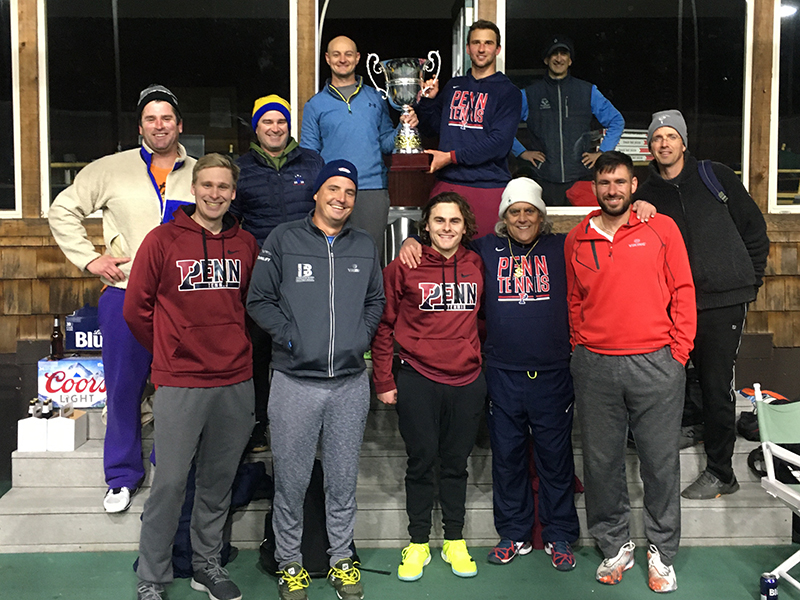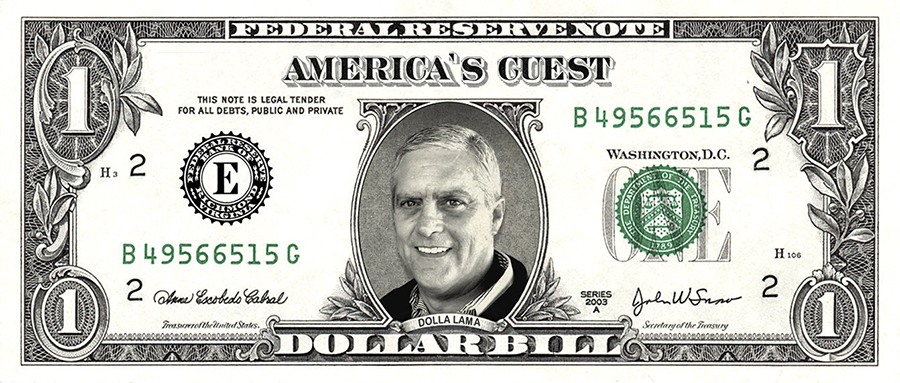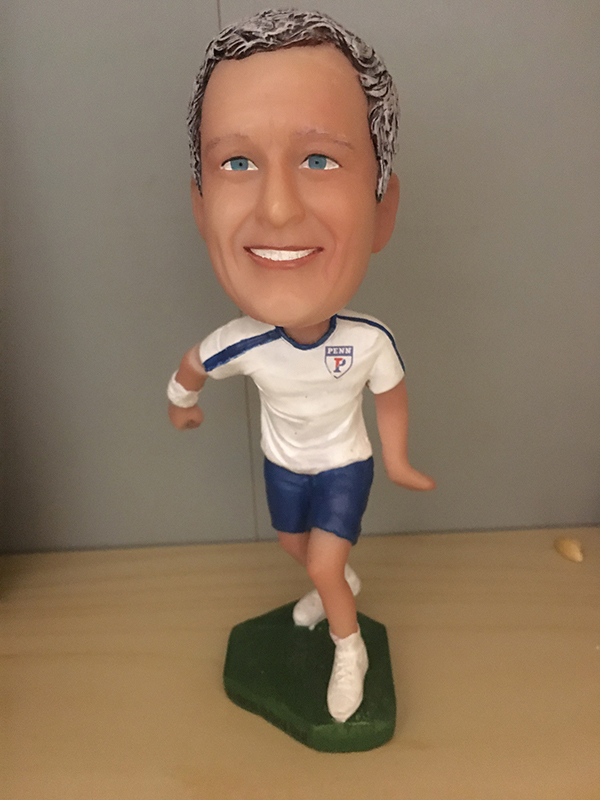NEWS
Mentoring Program 101

UPenn grads Nicholai Westergaard (front left), Josh Pompan (front middle), Dmitry Shatalin (holding trophy) with Bill Brazer (white hat) and MAPTA D1 teammates (See image above)
UPenn Tennis Players Move to Paddle
The creation of an ad-hoc mentoring program for young players can be adopted by any league—you just need time, a strong local youth or college tennis program, and ingenuity.
David Geatz, the recently retired UPenn tennis coach and a long-time paddle enthusiast, introduced some of his former players—Josh Pompan, Nicholai Westergaard, and Dmitry Shatalin—to the game. He mentioned this to his friend Bill Brazer, hoping that Brazer could keep their momentum going. During the pandemic, the athletes were looking for new outlets for their racquet skills and energy.
Orientation
Brazer, affectionately known as Dollar Bill, has a notable capacity for fun and loves the sport. Hearing that the young men really enjoyed the game, he pounced into action.

Basic Intro
In June 2020, Brazer invited Pompan and Westergaard to drill regularly. Homework included an instructional video by Peter Berka on playing screens with his famous quote ‘You wouldn't cut your vegetables up here.’ Brazer said, “When I got them on the court, I showed them the basic rules and strategy. Don't chase the ball in the corner, have patience, take time away from your opponents, and create time for yourself. Next, we worked on drop shots, forehands, backhands, and stuff volleys.” They picked it up right away.
Westergaard said, “That first time Dollar and I met each other, we just clicked. We are both very high-energy individuals. He’s one of the most unique people I've ever met. He’s been an incredible mentor.”
Acknowledging the young players’ limitless talent, Brazer folded them into his club’s league team. (Philly has four clubs—Conestoga Swim Club, Wallingford Swim Club, Picket Post Racquet Club, and Deerfield Golf Club—that are considered public and are allowed to recruit players for the MAPTA league.) In the aftermath, a community of pros and top area players created a pipeline for young talent. Shatalin joined the drills in September, a month before the season started.
Pompan said, “We got very addicted very quickly. I started playing many times a week. It was really challenging and that's why I loved it. Dollar literally opened our eyes to a completely different sport that we can probably play for the next 30 years.”
Rocks for Jocks
The young Ivy League grads started playing league matches. Brazer explained, “Covid was a blessing in this respect. MAPTA combined divisions, so the young guys competed against the D1 men right away—and they were winning. That is when everyone found out about them.” Now, any tennis playing UPenn graduate staying in the Philly area is guaranteed to get grabbed by ‘recruiters.’
Chemistry 302
While Brazer started playing paddle at age 10, he has no illusions of grandeur. “Once Josh and Nicholai were really interested, I said, ‘Look, guys, I'm just a 60-year-old player who knows the game. You need to work with the pros or top players in the area.’” Brazer fostered the relationships, but the young men had a way about them and were soon in demand.
Top MAPTA players and pros—Pat Nowlan, JC Cotto, Tomas Christian, Andrew Hocker, Nate Gambino, Scott Falatek, Eric Niesen, Dan Greenwood, Leo Gubler, and Trevor McAndrew—all invested time with the UPenn up-and-comers, based on their ridiculous racquet skills and their likeability.
“Dollar Bill had a regular rotation of experienced guys come out to hit with us every weekend. Nobody ever said no and everyone offered different advice,” Westergaard said.
Now in their mid-20s, Pompan and Westergaard are regular fixtures in the MAPTA men’s league. They both started out with a PTI of 35. Two years later, Pompan’s PTI is a 6, and Westergaard’s is in the 10s. (Shatalin, a Russian tennis prodigy, now works in NYC. New York and New Jersey players may want to reach out.)
Pompan added, “It’s great to have that team feel after college. During our time at UPenn, we got close but didn’t win an Ivy League title or make the NCAAs. It was awesome when we won MAPTA two years in a row. We finally got the ring!”

Graduation and the Future
Brazer concluded, “Tennis is the most cut-throat sport and somewhat lonely. The young men found out what a breath of fresh air paddle is; it’s both competitive and social. I told the kids, ‘You will experience the hut life. You’ll make business connections.’ On the court they are sponges, and they love the fun of the game. For me, it was not just a mentorship. These are lifetime friendships.”
His final words, “We all say you can’t teach talent. But you can repurpose it.”
Coach Geatz was more than a tennis coach. He wanted us to experience paddle because he loved it. We are still in touch often.—Nicholai Westergaard
I still play a lot with the Penn Tennis team and I always tell them how amazing paddle is. Once people get out there and realize it's like a chess game and you have this potential to grow, they realize that racquet sports get super fun again.—Josh Pompan

